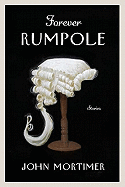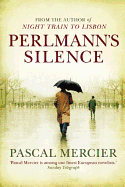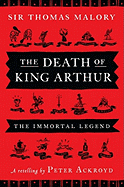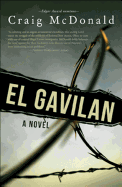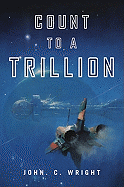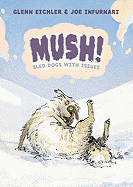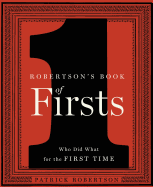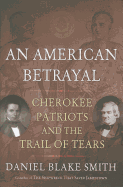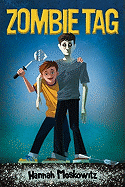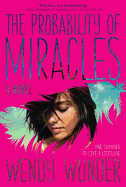Tuesday, December 20, 2011
| This is the last edition of Shelf Awareness for Readers for 2011. We wish you happy holidays and an excellent new year! We'll see you again on Tuesday, January 3. |
 Several years ago I e-mailed Lee Child to tell him how much I had enjoyed reading his Jack Reacher novel One Shot. His response has stuck with me since. He wrote that my praise meant a lot to him because it came from someone who had "seen the man behind the curtain" and knew just how difficult it was to do what we do. After receiving Lee's note, I recalled a TV interview of Orson Welles I had seen 30 years earlier. The interviewer asked Welles which of the current crop of movies he enjoyed. Welles stunned both the interviewer and the audience by saying he didn't really see many movies, that because he knew too much about how they were made, they no longer held any magic for him. I seem to remember that he used nearly the same phrasing Lee Child used, that Welles, too, had seen the man behind the curtain.
Several years ago I e-mailed Lee Child to tell him how much I had enjoyed reading his Jack Reacher novel One Shot. His response has stuck with me since. He wrote that my praise meant a lot to him because it came from someone who had "seen the man behind the curtain" and knew just how difficult it was to do what we do. After receiving Lee's note, I recalled a TV interview of Orson Welles I had seen 30 years earlier. The interviewer asked Welles which of the current crop of movies he enjoyed. Welles stunned both the interviewer and the audience by saying he didn't really see many movies, that because he knew too much about how they were made, they no longer held any magic for him. I seem to remember that he used nearly the same phrasing Lee Child used, that Welles, too, had seen the man behind the curtain.
One of the things that writers put at risk when they commit to this career is their unbridled joy in reading. It is one of the great paradoxes of my life that by writing, it has become nearly impossible for me to be transported by the written word the way I once was. I now cannot help but read analytically, looking for the tricks of the trade, looking more at the process than what the process has produced. This is not to say that I am never transported. It means I have less patience for mediocrity and savor the works of writers such as Daniel Woodrell, Megan Abbott, Philip Kerr and a very few others whom I can count on for the magic I once found more easily. Still, I would not trade my writing life for any other career. --Reed Farrel Coleman, author of Hurt Machine (Tyrus Books)
Follow the author on Facebook and Twitter
Perlmann's Silence
by Pascal Mercier, transl. by Shaun Whiteside
Prominent linguist Philipp Perlmann, a widower for a year, doesn't know how to live in the present--he's "fallen victim to an incurable indifference toward all desire for knowledge." He's run out of things to say and lives in fear of being exposed. Still, he agrees to organize a symposium and reluctantly invites the greatest minds in the field to join him at the Grand Hotel Miramare near Genoa for four weeks, where he will be the keynote speaker on the interrelationship of language and memory.
Perlmann tries to lose himself translating a linguistic text sent by Vassily Leskov, a formerly jailed Russian dissident who is not allowed an exit permit to attend the symposium. Meanwhile, the seminar members deliver their talks and grill each other; alliances are forged, enmities sparked and quiet vendettas unleashed. It's the academic jungle, where pointing out a colleague's mistake is a blood sport.
Perlmann miserably calculates how many days remain before he must deliver the paper he has yet to write. As the competitive antagonism of his colleagues corners him into a panic, Perlmann finally succumbs to a hideous temptation--he passes off Leskov's work as his own. The next day he receives word that the Russian linguist has managed to get a visa and will be joining them. Horrified, trapped, his plagiarism about to be exposed, Perlmann frantically begins to plan an "accident" for Leskov.
What could drive a good man to murder? Philosopher novelist Pascal Mercier (Night Train to Lisbon) has clearly given it serious thought. Once Perlmann sets out on his disastrous, suicidal attempt to arrange the perfect murder, this stately glacier of a novel morphs into an out-and-out thriller, as the character we've been sympathizing with for hundreds of pages tries to kill a man who genuinely likes him. It's harrowing, heartbreaking stuff, and author Mercier expertly ratchets up the suspense. --Nick DiMartino, Nick's Picks, University Book Store, Seattle
Discover: The frustrated keynote speaker at a linguistics conference in Italy plagiarizes a Russian colleague's paper--but when that colleague shows up, he's driven to attempt murder.
The Death of King Arthur: The Immortal Legend
by Peter Ackroyd
Sir Thomas Malory's version of the King Arthur legend, Le Morte d'Arthur was "published" in 1485 by William Caxton, 15 years after the author's death. Today, we're probably most familiar with the stories of Camelot through T.H. White's The Once and Future King or John Boorman's Excalibur (or even Monty Python and the Holy Grail). Do we need another version? Peter Ackroyd thinks we do and has returned to the source to recast Malory's story in a contemporary idiom. It's all here--Arthur and Merlin, the sword in the stone, the Round Table, the courtly love--and it makes for a very entertaining and exciting history lesson.
Ackroyd wants to preserve the "majesty and pathos" of Malory, but he also wants his "loose" rendition to be a shorter, more compact tale, emphasizing the story's steady pace, with its battles and adventures, its knights and ladies, its magic, above the original's more rambling and digressive telling. Reading Malory in the original Middle English can be a struggle, and though one can get used to it, the difference between "and desired to have lyen by her" and Ackroyd's "he looked at her with lust and cunning" demonstrates why he wanted to provide an "updated" yet "authentic" Death of King Arthur for a new and younger audience. --Thomas Lavoie, former publisher
Discover: A literature that teaches us about the Crusades and Christianity, the code of chivalry and the bloody brutality inherent in duels, jousts and sword fights.
Mystery & Thriller
El Gavilan
by Craig McDonald
Craig McDonald takes a break from his Hector Lassiter thrillers with a story that addresses the timely issue of illegal immigration into the United States. Taking neither a pro nor con stance, El Gavilan probes the gray areas while illustrating the volatile effects of the rape-murder of a Mexican-American mother on a small Ohio town.
El Gavilan follows three lawmen--Sheriff Able Hawk, Police Chief Tell Lyon and Sheriff Walt Pierce--as they battle each other for territorial rights in the rape-murder investigation. Each has his own agenda; none wears an unsullied white hat. Through their actions, McDonald smudges the lines between right and wrong, leaving readers with potentially conflicting feelings about the characters. It's this conflict that makes El Gavilan so irresistible: love or hate the characters, you can't help but invest in them. The story draws further power from McDonald's descriptive skills, as the sights, sounds and even the smells of his fictitious Ohio town reach from the pages and pull the reader in. El Gavilan proves that Craig McDonald is as capable working in the contemporary thriller as he is with historicals, and we can only hope he has many more opportunities to bring his stories to print. --Jen Forbus of Jen's Book Thoughts
Discover: A small town with a big problem and three lawmen ready to declare war on each other over it.
Forever Rumpole: Stories
by John Mortimer
Rumpole of the Bailey is one of the most beloved characters in British legal fiction. The Rumpole stories, however, cannot be classed among legal procedurals; that would imply some reference, however tenuous, to principles of jurisprudence, and Rumpole feels no compunction to burden himself or his clients with such. As Phyllida Trant, the recurring "Portia of [his] chambers," remarks, Rumpole is not very good with law, and in fact is concerned only with securing a "not guilty" for his client in whatever ways possible--usually by outwitting the judge and convincing the jury through hyperbole, distraction and, failing all else, subterfuge.
Sir John Mortimer, who died early in 2009, was an author and barrister; he attained the highest rank of Queen's Counsel or QC, an abbreviation which Rumpole invariably referred to as "Queer Customer," revealing the attitude of both author and character towards the British legal institution of the 1970s and '80s. Forever Rumpole assembles a collection of 15 stories--seven of them selected, some two decades ago, by Mortimer himself as his favorites. They are balanced by seven more recently written stories, along with a previously unpublished novel fragment Mortimer was writing at the time of his death, "Rumpole and the Brave New World."
Reading the stories in Forever Rumpole is like a delightfully cozy visit with an old friend, one who knows his limits and is rather pleased with himself just as he is. All the familiar icons are present: Rumpole's cigar-ash-covered waistcoat; his Wordsworth quotations; his oft-referenced Penge Bungalo Murder Case, which he, a junior barrister, won "alone and without a leader"; and, certainly, his ever-challenging relationship with his wife, Hilda, "She Who Must Be Obeyed." This lovely collection deserves a space on the shelf of any fan of Horace Rumpole, the indefatigable defender of the Golden Thread that sustains British justice: the onus on the prosecution to prove the defendant guilty beyond a reasonable doubt. --Judith Hawkins-Tillirson, proprietress, Wyrdhoard Books, and blogger at Still Working for Books
Discover: Fourteen entertaining tales, the best of the beloved Rumpole, plus a previously unpublished novel fragment, will delight fans.
All Yours
by Claudia Pineiro, transl. by Miranda France
According to the faithful housewife who narrates Argentinean crime writer Claudia Piñeiro's (Thursday Night Widows) darkly comic All Yours, "However painful it is to admit it, at some time or other, all women are deceived by their husbands."
Ines has been married to Ernesto for 19 years, since they were both 17. When she finds a heart drawn in lipstick with the words "All yours" across it, signed "your true love," in his briefcase, Ines decides not to overreact, convinced that the woman will be history in a week. When the affair persists, she eavesdrops on a late-night phone call and decides to follow him. She watches him meet his secretary in Palermo Woods, and when the young Alicia tries to cling to him, Ernesto pushes her away so violently that she falls, strikes her head against a log and dies.
Instantly Ines becomes Ermesto's no-nonsense accomplice, determined to protect her husband. Ernesto is such a blubbering bungler that she quickly takes charge of washing the mud off the car and getting rid of every clue. But Ines has made one big mistake. The girl she saw Ernesto accidentally kill is not the one he's having an affair with--"True love" is still very much alive.
Like the best crime novels, nothing happens quite as planned and schemes go frighteningly awry. When their secretly pregnant 17-year-old daughter tries to steal money for an abortion from her mother's hiding place, she instead finds her father's love letters. When Ernesto tries to escape to Rio with his girlfriend, he forgets the important blue folder for his business conference; Ines, devoted wife that she is, races to the airport to give it to him--to find him kissing his girlfriend on the escalator.
The translation by Miranda France is swift, clear and vernacular; the narrative is spare and energetic, the conclusion satisfying. But the creation of Ines is the book's triumph.
Her unshakeable faith in her marriage and her determination to save her husband are the heart of this unusual take on the betrayed wife, and Piñeiro brings this unforgettable character to life with delightful gusto. --Nick DiMartino, Nick's Picks, University Book Store, Seattle
Discover: In this darkly funny Argentinean crime novel, passionately devoted Ines will break any law to protect her unfaithful husband, who has accidentally killed his secretary.
Science Fiction & Fantasy
Count to a Trillion
by John C. Wright
With wit, charm and a wicked intelligence, John C. Wright's ninth novel kicks off a series set in both the near and far future of Earth. Polymath Menelaus Montrose rises beyond his poor religious upbringing by becoming an astronaut, winging his way along with thousands of others to a far flung asteroid on a dual mission to gather a highly sought after energy source there and to study its mysterious Monolith. Menelaus injects intelligence-enhancing smart drugs as soon as the mining and science ship leaves orbit, giving him a terrifying intellect but also causing a nearly incurable madness. The other mission staffers lock him away in suspended animation, allowing the novel to take a great leap into its second act, set hundreds of years later, after the landing party from the mission has returned to Earth, becoming masters of all they see, providing free energy to a hungry and grateful humanity. Menelaus rebels, of course, and begins a physical, mental and perhaps spiritual journey to use his intelligence to better humankind.
This is a novel of huge ideas, super-intelligent beings, transcendent mathematics and a Texan who becomes a stubborn champion of humanity. Wright rides a fine line between the well-trod SF trope of outsider individualist (think classic Robert A. Heinlein) and brilliant speculations on the nature of humanity, artificial intelligence and the potential for contact with extra-terrestrial intelligence. The pace is quick, the science and math are impressive and the big ideas are suitably mind-bending. This is science fiction at its best, and fans of the genre would do well to pay heed to this new master of the craft. --Rob LeFebvre, freelance writer and editor
Discover: A heady balance between far-reaching mathematical and cosmological ideas and humane and witty fiction.
Graphic Books
Mush! Sled Dogs with Issues
by Glenn Eichler and Joe Infurnari
The mushers in this funny, thoughtful and slightly disquieting graphic novel have a job to do: pull a sled and run like hell. Their workplace is a snowy, remote northern outpost where their human "boss" and his "mate" live a rustic, off-the-grid existence. Like all jobs, there exists no small amount of BS--backstabbing coworkers, performance insecurities and sexual harassment. Glen Eichler, a staff writer for The Colbert Report, and artist Joe Infurnari are clearly aiming for a sitcom-esque canine version of office politics here, but Mush! can't help absorbing some of the dark existentialism inherent to its arctic setting, rendered in a color palette that evokes the chill of winter. The result is a satisfying mixture of goofy-faced, talking-animal satire with a grim picture of an existence where work, death and survival are brutally intertwined.
Eichler and Infurnari have plenty of fun with the set-up. Dolly, the lead dog, worries that her passion for the run is the sum of her worth and, when she miscalculates the trail and crashes the pack, she wonders whether she has the mettle to lead. Venus is sick of being a puppy-making machine and wants Buddy to stop trying to breed with her. Guy uses Iago-like manipulation to get Winston to do his bidding. Meanwhile, inside the cabin, the boss's mate is starting to buckle under the austere and lonely conditions. At one point, two dogs debate whether the boss really exists or whether they have conjured him by their need for a higher power. It's all absurd and entertaining, but harsh and unsettling, too. After all, if Mush! is analogous to the human workplace, what does it mean that the only options are frantic running and irrelevance? --Cherie Ann Parker, freelance journalist and book critic
Discover: A satirical send-up of workplace politics set amid a sled dog pack in the far north.
Biography & Memoir
Brenda My Darling: The Love Letters of Fridtjof Nansen to Brenda Ueland
by Eric Utne, editor
In the world of love letters, a few classics stand out: Abelard and Heloise, Anaïs Nin and Henry Miller, Sartre and de Beauvoir. We can now add the correspondence of Fridtjof Nansen and Brenda Ueland... to which one might respond: "Who?"
Nansen was a zoologist and explorer, first recognized for his daring crossing of Greenland's icecap and later for his influence in the creation of an independent Norway. In 1929, the 67-year-old Nobel Peace Prize laureate became enthralled by 37-year-old Brenda Ueland during a two-day visit to New York and began writing weekly love letters to her until his death a year later. The less-known Ueland was a Minneapolis-born, free spirited bisexual who mixed with Greenwich Village intellectuals, writers and artists before returning to a home on Lake Harriet where she lived to be 93... writing, taking lovers and walking the perimeter of the lake.
Eric Utne, founder of Utne Reader, recently discovered these letters, recognizing in them a remarkable love affair which burned with sexual desire and intellectual passion... but only in writing and for only a year. Ueland's letters to Nansen have been lost, but Utne includes several entries from her books, journals and pictures to help explain their intense attraction. Regardless of whether the Nansen/Ueland letters achieve a place among the "classics," they are further evidence of the power of love and sexual attraction to overcome age, class and distance. --Bruce Jacobs, founding partner, Watermark Books & Cafe, Wichita, Kan.
Discover: A brief but passionate correspondence between a Nobel Peace Prize winner and a much younger writer and free spirit.
History
Robertson's Book of Firsts: Who Did What for the First Time
by Patrick Robertson
Robertson's Book of Firsts is social history disguised as a quirky encyclopedia. Many of Patrick Robertson's engaging essays on firsts deal with the mundane: the bra, the plastic garbage bag, margarine, paintballs. Others tell the story of debuts that truly changed the world, like the first electric power plant, or describe major achievements that foreshadow later social change, such as the first black head of state of a predominately white government (William Ferguson, governor of the British colony of Sierra Leone in 1845).
One of Robertson's criteria for establishing his firsts will give historians heartburn: his firsts refer, he says, "to the first in the modern world." That doesn't matter when he's talking about garbage bags or margarine, but it distorts history substantially when he names 19th-century London as the first city with more a million people, ignoring eighth-century Baghdad. (He also has a habit of amending headings like "The First Choral Society" with "in America" when it comes to the actual text.)
Such quibbles aside, Robertson's Book of Firsts is wide-ranging, engaging and as addictive as a bag of salted peanuts. You pick it up to look up the first use of fingerprinting. The next thing you know you've worked your way back to the first flush toilet (invented in 1589), the first nudist camp (a very serious-minded endeavor founded in Germany in 1903) or the first call girls, literally prostitutes whose services could be ordered by telephone. Who knew? --Pamela Toler, blogging at History in the Margins
Discover: Who did what for the first time. And why and where and how.
An American Betrayal: Cherokee Patriots and the Trail of Tears
by Daniel Blake Smith
Is a patriot's duty to demand the absolute rights of his or her people to the end? Or is it more heroic to negotiate the best possible terms when faced with an inevitable defeat? This troubling question hangs heavy over Daniel Blake Smith's intriguing An American Betrayal, a detailed history of the Trail of Tears, the brutal forced relocation of the Cherokee people from their ancestral homeland in the southeast to the western territory that is now Oklahoma. Smith, a historian and documentary filmmaker, seeks to elevate the legacies of Elias Boudinot, his cousin John Ridge and Ridge's father, Major Ridge--the three native leaders who signed the "Treaty of New Echota," a document that surrendered the Cherokee homeland in exchange for financial and other considerations for the tribe. The three were later assassinated in the post-Trail atmosphere of rage and recrimination.
An American Betrayal explains how, once Boudinot and the Ridges recognized that the expanding United States was determined to have Cherokee land one way or the other, they negotiated in good faith on behalf of the tribe even as the recognized Cherokee leader, Chief John Ross, remained determined to hang onto the land and the Cherokee's right to live as they pleased. Smith points out that, though later generations romanticized Ross's holding out, had Ross seen the writing on the wall and joined the Treaty Party, many thousands of Cherokee lost on the Trail might have been saved. That grim realism flows throughout this very readable history and challenges the reader to confront the impossible situation of all the Cherokee leaders: How do you do right when every possible choice is wrong? --Cherie Ann Parker, freelance journalist and book critic
Discover: Discover: A detailed history of the events leading up to the forced relocation of the Cherokee people in 1838.
Children's & Young Adult
Zombie Tag
by Hannah Moskowitz
In Hannah Moskowitz's (Invincible Summer) first novel aimed at middle graders, she strikes just the right balance between grief and humor as a boy strategizes to bring his brother back from the dead.
Twelve-year-old Wilson Lowenstein wants nothing more than to get back his recently deceased brother, Graham. Legend has it that a special bell can wake the dead within five miles, and when Wil's best friend, Anthony, lets it slip that his father has hidden the bell in their home, Wil sets out to find it. Wil invented a game called "Zombie Tag," in which everybody closes their eyes while the designated zombie hides a "key" and then returns to tap everyone on the back. If you find the key, you defeat the zombies, but more often, the zombie turns the others into zombies, too. Wil uses the structure of the game to search for the bell at Anthony's home, finds it, and uses it, and 70 dead people rise and return home--including Graham.
Wil must confront some troubling questions: Is it better to have a brain-devouring zombie (like the ones in his game of tag) or a zombie devoid of all emotion? And then there's the reaction of the townspeople. They behave as if the risen dead could somehow infect them. Moskowitz's questions have a deeper resonance for any family grieving a loved one who has changed as a result of disability or illness. Using a fantasy element, the author explores very real emotions of loss and change. --Jennifer M. Brown, children's editor, Shelf Awareness
Discover: A boy's quest to bring back his recently deceased brother, and the ramifications when he succeeds.
The Probability of Miracles
by Wendy Wunder
In this addition to the growing genre of teen girls confronting death, Wendy Wunder's debut novel offers some perceptive observations on mortality.
Campbell Cooper knows she will never reach the age of 18. She was diagnosed with neuroblastoma as a child, and she has just learned that there are no more clinical trials left. Her mother surprises Cam and her 11-year-old sister, Perry, with a summer trip to Promise, Maine, because of its purported healing powers. Cam does not believe in miracles, but her mother and sister do. She agrees to the trip in part because she "realized she'd be spending the rest of her short life making other people feel better about the prospect of losing her." The three pile into Cam's VW Beetle and tote a U-Haul from their Florida home, making stops along the way.
Each person they visit tries to give Cam the "miracle" that will work. Her best friend, Lily, baptizes Cam. Nana, Alicia's mother, urges her to take a "mystic" maple leaf from the churchyard of Our Lady of Ascension in Hoboken, N.J. But only when she meets Asher, whose family founded Promise, Maine, does Cam begin to feel a sense of hope. The novel bogs down with a few subplots (such as when Cam tries to "rescue" a lobster) and a few comments may pull readers out of the narrative (e.g., "Teenagers run in packs. And for too long she'd been trying to go it alone"). But the evolution of Cam's relationships with her sister and mother hold the novel together. --Jennifer M. Brown, children's editor, Shelf Awareness
Discover: A 17-year-old dying of cancer who realizes that it's never too late to hope.


